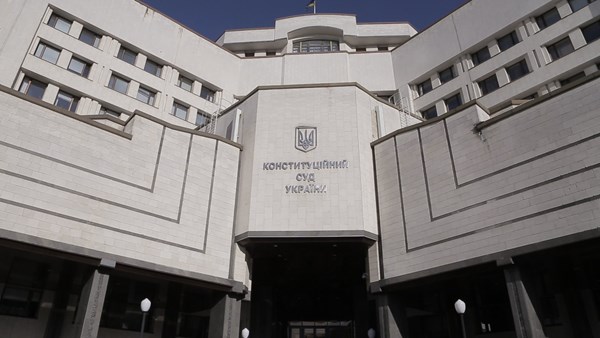Ukraine’s Constitutional Court declares 'illegal enrichment' article unconstitutional
The Constitutional Court of Ukraine has published its decision to declare article 368-2 of the Ukrainian Criminal Code (illegal enrichment) unconstitutional.
“The Constitutional Court of Ukraine has made a decision in the case of the constitutional proposal of 59 Ukrainian MPs concerning the constitutionality of article 368-2 of the Ukrainian Criminal Code. With this decision, the court has recognized that article 368-2 of the Code is unconstitutional,” says the ruling, which was published on the Constitutional Court’s official website.
The court emphasized that corruption must be opposed exclusively through legal means, in compliance with constitutional principles and the provisions of legislation adopted in accordance with the Constitution.
The court also concluded that article 368-2 does not meet the requirements for “clarity, accuracy and unambiguity, and thus is inconsistent with legal specificity as a component of the rule of law principle established in article 8 of the Constitution of Ukraine”.
The court also pointed out that the constitutional provisions on the presumption of innocence and the inadmissibility of prosecuting persons for refusing to give evidence or explanations about themselves, their family members or close relatives, must be adhered to equally for all people. The Constitution of Ukraine does not allow these guarantees to be constricted or lifted with respect to individual categories of people.
Failure to prove the legitimacy of how a significant quantity of assets was acquired – the basis of the definition of “illegal enrichment” as a crime – is a serious shortcoming of the article, the court notes. Such a framework of article 368-2 would make it possible to prosecute a person who acquired assets legitimately, but does not possess proof of this. However, a lack of proof of legitimacy is not the same as proof of illegitimacy, or consequently, proof that a person is guilty of illegal enrichment.
“In this way, the legal definition of a crime such as illegal enrichment makes it possible to justify accusing a person of illegal enrichment on assumptions even when it is a person who has legally obtained ownership of the assets in question,” the Constitutional Court concludes.
The court emphasizes that opposing corruption in Ukraine is a task of exceptional public and state significance, and the criminalization of illegal enrichment is an important legal means to implement state policy in this area. However, the definition of a crime such as illegal enrichment must take into account the constitutional provisions that establish the principles of legal accountability, human and civil rights and freedoms, and their guarantees.
Article 368-2 becomes invalid from the date of the Constitutional Court’s ruling. The ruling is binding, final, and cannot be appealed.
The motion to revoke article 368-2 was initiated by 59 members of Ukrainian parliament. Only four judges opposed it.
